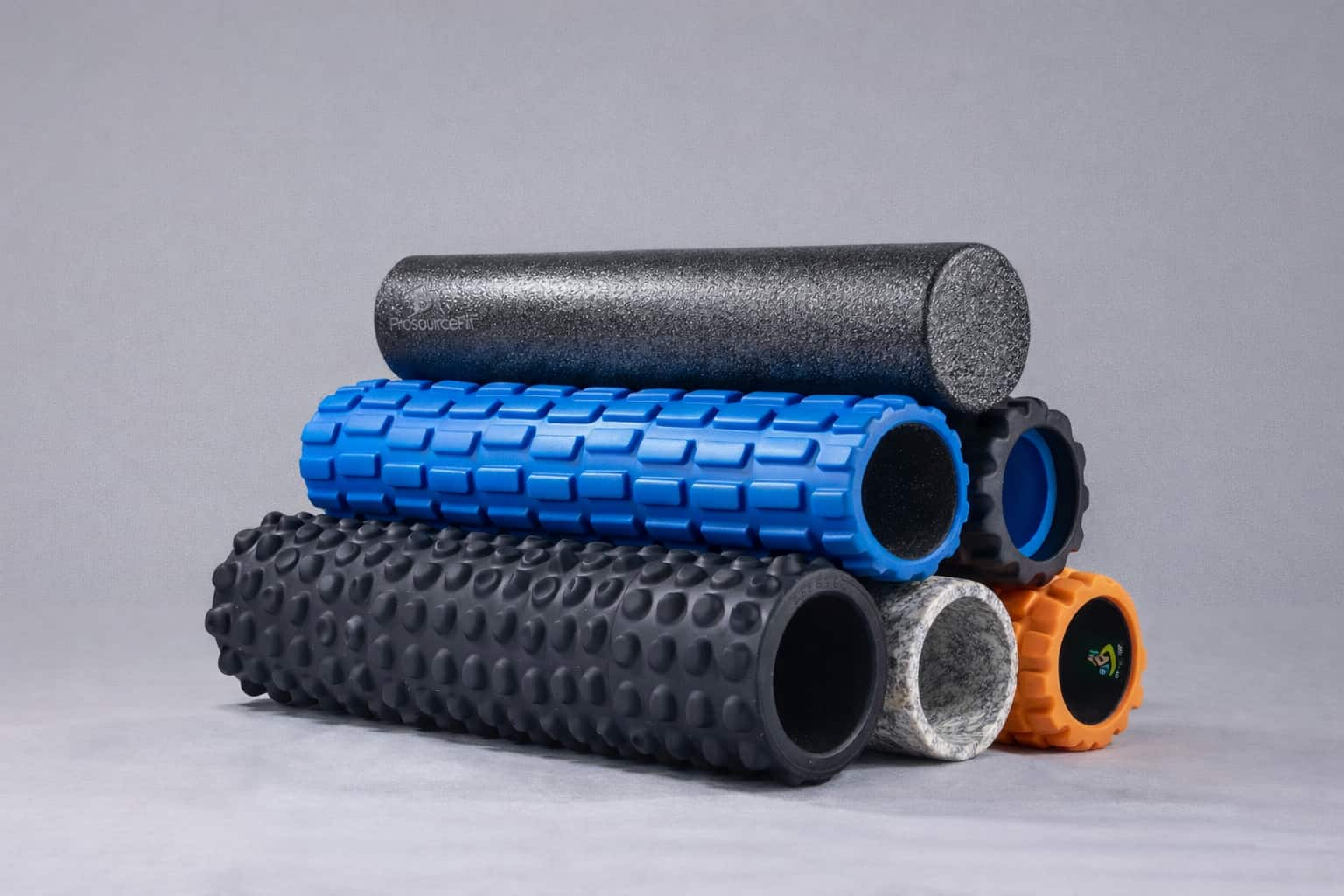7 Powerful Daily Health Tips for Employees to Boost Energy and Productivity


Staying healthy in your working life is not only a necessity; it is a responsibility. Sitting in the office for long hours, mental stress, and a lack of time together can make it hard for many people to take care of their health. This is where Powerful Daily Health Tips for Employees can be the beginning of change. Small daily habits like drinking enough water, eating nutritious food, regular stretching, or practicing mental peace not only improve physical fitness but also boost work enthusiasm and productivity because only a healthy employee can start work every day with new energy.
“Even a 5-minute break can help employees recharge and reduce stress during the workday, as recommended by Mayo Clinic.”
7 Powerful Daily Health Tips for Employees
1. Staying hydrated and eating right


There is no alternative to drinking enough water and eating nutritious food to maintain employees’ energy and productivity at work. This habit not only supports physical health but also enhances brain function and work focus.
Not dehydration, but stable energy
Our body is made up of about 60% water. And if there is a slight water deficiency in the body, fatigue, lack of attention, and irritability occur. Therefore, it is essential to drink 2.5-3 liters of water every day. Always keep a bottle of water on your desk and drink small amounts of water now and then. And of course, when you urinate, keep an eye on whether the color of your urine has turned yellow. If you want, you can use lemon juice instead of water; it has many other benefits beyond meeting your water needs. You can also drink green tea in small amounts every day.
Learn More: How to make infused water for better hydration
Smart Nutrition: Avoid Lunch Slump
Those who work regularly make poor nutrition decisions. It has been observed that during lunch in the office, heavy meals are consumed, which later leave the body tired and sleepy and hinder concentration, leading to an inability to work. Ensure your lunch has the right mix of carbohydrates, fiber, and protein. Protein and fiber keep the stomach full for a long time and help stabilize blood sugar levels, which helps eliminate fatigue at the end of the day.
Of course, for snacks, you can have a banana, an apple, yogurt, etc., but avoid sugary, packaged foods.
Note: Most of the time, we skip breakfast, which is very harmful to the body. Never skip breakfast. A healthy breakfast starts your metabolism and lays the foundation for the day’s work.
Learn More: Cheap and Healthy Lunch Ideas for Busy People
2. Short breaks and movement between work
Take regular ‘micro-breaks’
“Research shows that taking short breaks during work can significantly improve memory, focus, and learning capacity-Harvard Health
Studies have shown that taking a short break of 5-10 minutes every 45-60 minutes of work significantly reduces brain fatigue and the subsequent work session is more effective.
A simple strategy is to stand up at the end of every hour and do light stretching or limb movement for a few minutes. This improves blood circulation and reduces muscle stiffness.
Occasionally, small office meetings can be held on foot. Drink tea or coffee during breaks, and walk with your colleagues rather than sit. This will reduce boredom and help you focus on work.
Eye rest and eliminate digital fatigue
Continuous staring at the computer screen can lead to digital eye strain, resulting in headaches and eye discomfort.
The 20-20-20 rule: Follow this rule to keep your eyes healthy. Every 20 minutes, look at something 20 feet away for 20 seconds. This relaxes the eye muscles and keeps the eyes fresh.
Distance from the screen: Make sure your monitor is slightly below eye level and 20 to 40 inches away.
3. Ergonomics of the work environment
Along with movement, your sitting posture is also essential. An ergonomically poor work environment can hurt your body in the long run.
Correct sitting posture: Make sure that your back is straight in the chair, your feet are flat on the floor, and your arms are at a 90-degree angle while working on the keyboard.
Use a standing desk: If there is an opportunity, use it to work standing up occasionally. This is very effective at reducing the ill effects of prolonged sitting.
4. Mindfulness and stress management
Overwork, tight deadlines, and strained relationships with colleagues often lead to stress and anxiety among employees. Chronic stress not only negatively affects the mind but also the body, reducing employees’ energy and focus. Mindfulness is a proven, effective strategy for combating this problem.
The Power of Mindfulness
Mindfulness is the practice of focusing your full attention on the present moment without judgment. It helps employees detach themselves from past thoughts or future worries, allowing them to better focus on the task at hand.
Brief Meditation: Sit in a quiet environment for just 5 minutes a day, close your eyes, and focus only on your breathing. This works very quickly to manage stress and calm the nervous system.
Mindful Walking: When you walk during your work break, focus only on the experience of walking. The feeling of your feet touching the ground, the movement of your body, and how it moves. This frees the mind from restlessness.
Single Tasking: The habit of doing more than one thing at a time increases stress. Mindfulness teaches that completing a task with full attention increases efficiency.
Daily Stress Management Techniques


It is not possible to eliminate stress, but it is possible to control and manage it.
Deep breathing exercise: Whenever work pressure feels too much, sit up straight in a chair, close your eyes, and breathe deeply and slowly. Inhale for 4 seconds, hold, and exhale slowly for 6 seconds. This deep breathing technique can quickly calm your stress hormones.
Realistic goal setting: When creating your daily to-do list, prioritize tasks and set achievable goals. Don’t overwork yourself.
Express gratitude: Journal your gratitude for small things at the end of the day or during breaks. Focusing on the positive aspects de-stresses the mind and builds resilience.
By practicing mindfulness regularly, employees can better recognize their emotions and learn to respond thoughtfully, rather than reacting, to stressful situations. This creates a strong foundation for overall mental well-being and maintaining high productivity.
5. Incorporate physical activity into your daily routine
Physical activity doesn’t just mean hitting the gym and doing heavy workouts. Keeping your body active or ‘making movement part of your routine’ is a simple but very effective habit, even during the busyness of your work life. It is essential for maintaining employees’ physical health, mental alertness, and work enthusiasm.
Sitting for long periods can lead to physical problems and reduce blood circulation. Regular physical activity combats these problems and helps improve overall energy levels.
Daily 15-minute ‘micro-workouts’
If you don’t have time for a big workout, use small activities. These ‘micro-workouts’ can be easily added to different parts of your day:
Brisk walk: Take a 20-minute walk during your lunch break. This effective walk refreshes your mind and helps to get rid of the lunch slump.
Use the stairs: Use the stairs instead of using the elevator. This is a great cardiovascular exercise for your heart and helps increase your body’s endurance.
Desk Stretching: Do some simple desk-friendly exercises right from your chair, such as shoulder rotations, neck stretches, or triceps dips. This reduces muscle tension.
Movement in your work routine
Instead of setting aside time for physical activity, create opportunities for it during your workday.
Walk while on a phone call: Whenever you have a phone call or virtual meeting, make it a habit to walk around and talk instead of sitting at your desk. This keeps your body active and increases your focus.
Hourly Reminders: Set a reminder on your phone to stand up and do two minutes of light exercise at the end of every hour.
Activate the end of the office: Walk one or two stops nearby instead of getting on the bus straight from the office. This starts the relaxation process for your brain and body.
Regular physical activity not only keeps the body fit, but it also plays a special role in reducing stress and anxiety by increasing the release of endorphins in the brain. These small changes in your routine will have a significant positive impact on your health.
6. Adequate and quality sleep


Sufficient sleep is more important than diet and exercise to maintain energy and focus at work. Sleep is not just a rest for the body; it is a time for the brain to process information throughout the day, strengthen memory, and repair damaged cells. For adults, 7 to 9 hours of sleep is generally considered ideal.
Adequate sleep keeps the levels of the stress hormone cortisol under control, which helps reduce anxiety and depression in employees. During deep sleep, the body repairs its muscles and tissues, helping you feel completely refreshed the next morning.
Daily habits for quality sleep
You can improve the quality of your sleep by making minor changes to your work routine.
Specific sleep routine: Try to go to bed and wake up at the same time every day, including holidays. A consistent sleep schedule helps regulate your body’s internal clock.
Limit screen time: Stop using your mobile phone, laptop, or TV at least 1 hour before bed. The blue light from these devices inhibits the production of the sleep hormone melatonin.
Comfortable sleeping environment: Make sure your bedroom is calm, dark, and quiet. A slightly lower temperature during sleep helps you sleep better.
Avoid caffeine and heavy meals: Avoid heavy meals, alcohol, and especially caffeine close to bedtime. These can disrupt the deep sleep cycle.
7. Disconnect from work
Set boundaries for your work schedule
Set boundaries for your work hours to maintain physical and mental health. This is a powerful habit that helps prevent employee burnout.
“No email” time: Refrain from answering office emails, messages, or calls after work hours and on weekends. This sends a clear message to your colleagues and clients that your personal time is valuable too.
A workplace: If possible, avoid keeping work equipment (such as laptops and office files) in personal relaxation areas, such as the bedroom. Separate your work environment from your personal life.
Deconfining routine: Create a 10-minute routine after work, such as doing light stretching, listening to a song, or taking a short walk. This routine will help your brain easily transition from work mode to personal mode.
Complete distance from screens
Even after work hours, many people still spend personal time on screens for social media or entertainment. Maintaining a distance from screens for a specific period of time is particularly beneficial for mental health.
FAQ
Q: What simple habits can employees follow to stay healthy at work?
A: Drink enough water, take short micro‑breaks or stretch, eat nutritious meals, practice brief mindfulness or breathing exercises, and ensure adequate sleep. These habits help boost energy, focus, and overall productivity.
Q: Do micro‑breaks really improve work performance?
A: Yes, research shows that short breaks like standing up, stretching, or quick mental refreshes reduce fatigue and enhance focus. Over time, they can significantly improve overall work efficiency.
Staying Energized and Productive with Daily Health Tips for Employees
Wellness and productivity can go hand in hand if we focus on small, everyday habits. Powerful Daily Health Tips for Employees. Habits like drinking enough water, stretching regularly, eating nutritious foods, staying calm, and getting enough sleep not only improve physical health but also increase mental energy and motivation. Small changes every day can make a big difference in the long run.
Start today, and see how your energy, focus, and productivity reach new heights.









